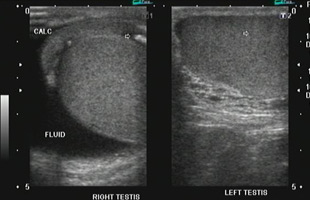Testicular ultrasound scanning
Testicular (scrotal) scanning is a good idea if you want to check the overall health of your testicles
What can be detected with the scan?
The scan can show the normal testes, epidydimis and scrotal contents.It will show if there is a normal blood flow to both testes or if there is any inflammation or tumour. Varicocoeles, epidydimal cysts and hydrocoeles can also be detected.
Varicocele
Varicocele is an enlargement of the veins in the scrotum (the pampiniform plexus of veins) similar to varicose veins and is the leading known cause of male infertility.
Varicoceles are a contributing factor in up to 40% of cases of primary infertility (where the couple have been unable to conceive within 12 months of trying) and up to 80% of cases of secondary infertility where the couple already have a child but are struggling to conceive another.
Studies show that varicocele repair can significantly improve semen parameters, reduce oxidative stress and sperm DNA fragmentation as well as increase the chances of a pregnancy either naturally or with fertility treatment.
What is ultrasound scanning?
An ultrasound scan uses high frequency sound waves which are reflected off the structures in the body to produce images of the organs on a monitor.
What happens during your scan?
Your scan will be performed off-site by a radiologist who is a doctor specially trained in ultrasound scanning. You will be asked to lie on an examination bed and to remove your pants and trousers. You will be covered so only the scrotum is exposed. Lubricant gel is applied to the scrotum and a small probe is applied to the area. This produces sound waves which convert into an image of the testicles on the screen. The investigation does not hurt and will take approximately 10 minutes to perform.
What are the risks of the test?
There are no known risks or side effects of ultrasound scanning. It does not involve ionising radiation.

Fertility Testing
- Comprehensive semen analysis
- Sperm DNA damage and genetic screening
- Oxidative stress
- Retrograde ejaculation
- Infection screening
- Testicular ultrasound scanning
- Hormone profiles
- Well man screening
Have a question?
We understand that fertility is a very personal and private matter. We’re here to answer any questions you may have. Contact us to arrange an appointment or read our FAQs.
